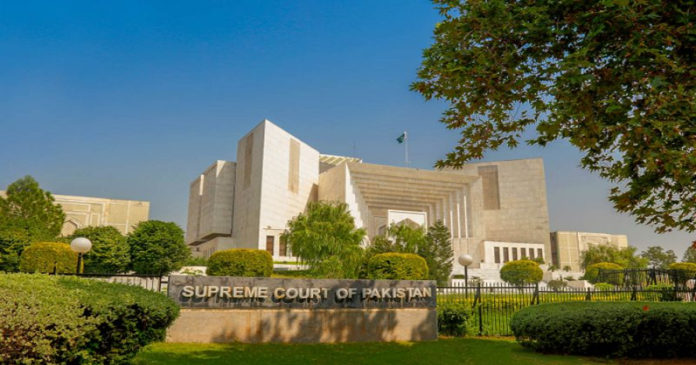The chairman of the Pakistan Tehreek-e-Insaf (PTI) and a former prime minister petitioned the Supreme Court (SC) to overturn changes made to the Official Secrets Act and Pakistan Army Act.
PTI chairman moves SC against Army Act: Imran Khan, the chairman of the Pakistan Tehreek-e-Insaf (PTI), filed a plea before the supreme court through his attorney Shohaib Shaheen against recent changes to the Army Act 1952 under Article 184 of the Pakistani Constitution.
According to the petition, the new sections violate people’s rights.
The petition, which requests the repeal of the Official Secrets Act and the Army Amendment Act, names the President and PTI member Dr. Arif Alvi, the Government of Pakistan, and the National Assembly as respondents.
“The President did not sign the Official Secrets Act or the Army Amendment Act. It was noted that Article 10A, Article 8 and Article 19 were violated by the Army Amendment Act and the Official Secrets Act.
The argument
President Arif Alvi had previously declined to sign the Pakistan Army Act (Amendment) Bill 2023 and Official Secrets (Amendment) Bill 2023.
Arif Alvi declared on X [formerly known as Twitter] that God is his witness that he did not sign the Pakistan Army Amendment Bill 2023 and the Official Secrets Amendment Bill 2023 because he did not agree with these laws.
The president said that in order to render the bills “ineffective,” he instructed his staff to return them unsigned within the allotted period.
It’s important to note that the parliament approved both of these legislations while the coalition administration was in power and then forwarded them to President Alvi for ratification.
Army Act
The bill’s provisions state that unauthorised disclosure of information obtained in the interest of national security and in one’s official capacity will result in severe punishment for up to five years; however, disclosure done with the Army Chief’s or the authorised officer’s consent will not result in punishment.
The bill also stated that those who are subject to it will not be permitted to engage in political activity for two years following their retirement, resignation, or dismissal.
The measure states that anyone who engages in electronic crime with the intention of disparaging the Pakistan Army shall face legal action.
Government Secrecy Act
In order to preserve the safety and security of official papers, it is essential to revise the Official Secrets Act of 1923 and make it more effective in light of the evolving social landscape.
A person commits a crime, according to Section 3 of the law, if they “approach, inspect, pass over, enter, attack, destroy, or otherwise undermine any prohibited place” with the goal of doing so.
“It continue, ‘Anyone who intentionally creates any sketch, plan, model, or note for any purpose that is calculate to be, might be, or is intende to be, directly or indirectly, useful to an enemy, shall be guilty of the offense.'”
“Furthermore, it specifie that it is illegal for anyone to obtain, collect, record, publish, or transmit to another person any secret official code or password, as well as any electronic or modem device, drawing, or plan that is intende to be, or could be, beneficial to a state enemy.”
Meanwhile, they amended Section 9 to specify that anyone who incites, conspires, or attempts to commit shall face punishment, which may include imprisonment for a term not exceeding three years, a fine not exceeding one million dollars, or both.

